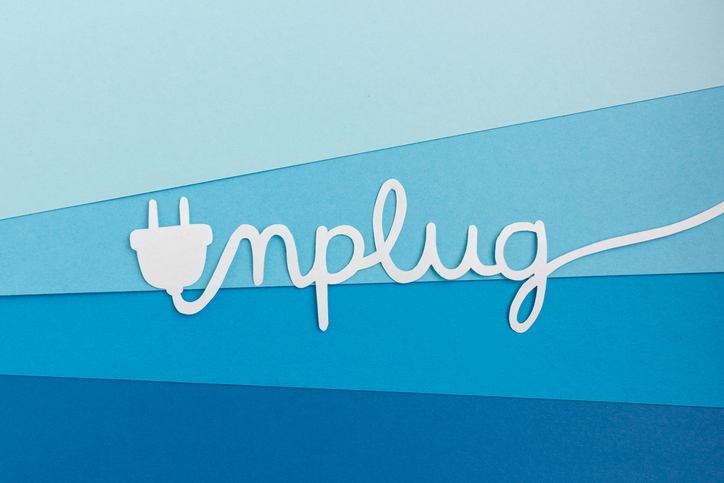Over the past twenty years’ technology has been taking an ever-expanding role in our lives. Is it making things easier? It appears so. Is it making us happier? That’s debatable.

That’s where a book like Cal Newport’s Digital Minimalism comes in. It pulls double duty as a self-help book and a sociological overview of how our lives have been impacted by online distractions. “People don’t succumb to screens because they’re lazy,” Newport writes, “but instead because billions of dollars have been invested to make this outcome inevitable.”
Since our online time has become pervasive and expected, it might be in your interest to scale back your screen time. Newport recommends some groundbreaking principles and a three-step plan to declutter our digital lives:
- Define your technology rules.
- Take a thirty-day break.
- Reintroduce technology.
Sounds challenging, right? The trick is to realize which specific aspects of your digital life align with your values and add something to your life. Otherwise it’s just buzz. Newton also describes a state called solitude deprivation, which can be a side effect from being online for much too long, separated from silence or the natural flow of your thoughts.
How long has it been since you’ve had that kind of time for yourself? If you’re interested, then Digital Minimalism might be the book for you.
Here is the summary on Amazon:
“Minimalism is the art of knowing how much is just enough. Digital minimalism applies this idea to our personal technology. It's the key to living a focused life in an increasingly noisy world.
“In this timely and enlightening book, the bestselling author of Deep Work introduces a philosophy for technology use that has already improved countless lives.
“Digital minimalists are all around us. They're the calm, happy people who can hold long conversations without furtive glances at their phones. They can get lost in a good book, a woodworking project, or a leisurely morning run. They can have fun with friends and family without the obsessive urge to document the experience. They stay informed about the news of the day, but don't feel overwhelmed by it. They don't experience "fear of missing out" because they already know which activities provide them meaning and satisfaction.
“Now, Newport gives us a name for this quiet movement, and makes a persuasive case for its urgency in our tech-saturated world. Common sense tips, like turning off notifications, or occasional rituals like observing a digital sabbath, don't go far enough in helping us take back control of our technological lives, and attempts to unplug completely are complicated by the demands of family, friends and work. What we need instead is a thoughtful method to decide what tools to use, for what purposes, and under what conditions.
“Drawing on a diverse array of real-life examples, from Amish farmers to harried parents to Silicon Valley programmers, Newport identifies the common practices of digital minimalists and the ideas that underpin them. He shows how digital minimalists are rethinking their relationship to social media, rediscovering the pleasures of the offline world, and reconnecting with their inner selves through regular periods of solitude. He then shares strategies for integrating these practices into your life, starting with a thirty-day "digital declutter" process that has already helped thousands feel less overwhelmed and more in control.
“Technology is intrinsically neither good nor bad. The key is using it to support your goals and values, rather than letting it use you. This book shows the way.”







